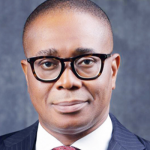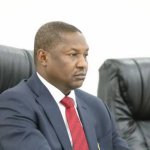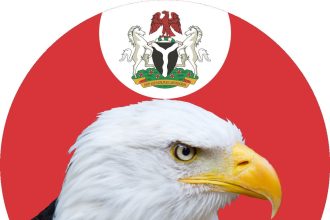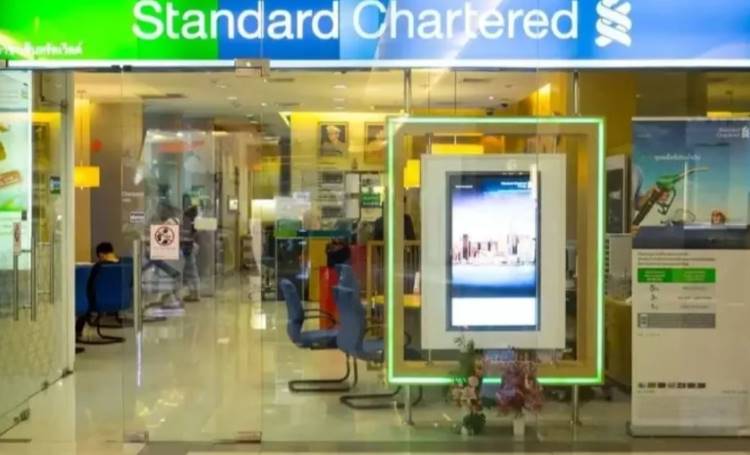...To get all news updates, Join our WhatsApp Group (Click Here)
Also Join our WhatsApp Channel (Click Here)
Standard Chartered Bank Nigeria Limited has approached a federal high court in Lagos urging the court to declare that Value Added Tax VAT and withholding Tax WHT liabilities by the Revenue Mobilisation Allocation and Fiscal Commission (RMAFC), as illegal, and of no effect whatsoever.
The Bank is also urging the court to declare that the Federal Inland Revenue Service is the sole agency of the Federal Government statutorily empowered to administer, assess, collect and enforce the payment of, Federal taxes (including VAT and WHT due to the Federal Government) pursuant to the Value Added Tax Act, Companies Income Tax Act and other tax statutes enumerated in the First Schedule to the Federal Inland Revenue Service (Establishment) Act.
The Bank in amended Statement of Claim filed before the court by its lawyer, Chukwuka Ikwuazom, SAN, is contending that the Federal Inland Revenue Service cannot abdicate these statutory functions to the Revenue Mobilization Allocation and Fiscal Commission RMAFC and Economic and financial commission EFCC who are 1st and 2nd defendants respectively in this suit
The Bank stated that, sometime in 2016, the RMAFC, in the purported exercise of it’s powers allegedly donated to it by the Federal Inland Revenue Service, commenced what it described as “verification and reconciliation of revenue collections and remittances” by banks (including the Plaintiff) on behalf of the Federal Inland Revenue Service and the Nigeria Customs Service for the period between 2008 and June 2012.
It stated that the Defendant, without any factual or legal basis, issued a demand notice demanding from the Bank a whooping sum of N20,701,648,351.40 (Twenty billion, seven hundred and one million six hundred and forty-eight thousand three hundred and fifty-one Naira and forty kobo) which the RMAFC claimed to be unremitted Value Added Tax (“VAT”), and Withholding Tax (“WHT”) due to the Federal Government from the bank for 2008 to June 2012 financial years.
The bank objected to the RMAFC authority to issue the demand notice, it not being the agency of the Federal Government statutorily empowered to administer, collect and enforce tax obligations on behalf of the Federal Government.
The bank further objected to the demand notice on the ground that the bank did not owe the alleged tax liability contained in it.
The Bank maintained that, at the time of the issuance of the said demand notice, it has fully discharged its tax obligations to the Federal Inland Revenue Service for the relevant years (2008 to June 2012) and the Federal Inland Revenue Service, which had concluded a tax audit of the bank, had not \ issued any additional assessment of tax to the bank
But, the RMAFC allegedly acting through its agents, Messrs. Dele Olaniyan & Co. and Aikosi Festus & Co., disregarded the bank’s objections and continued to pursue the recovery of the purported VAT and WHT liabilities.
Following several invitations of employees of the bank to the offices of the EFCC at No. 154 Awolowo Road, Ikoyi, Lagos and threats of arrest and detention of its senior employees, the bank reluctantly agreed to engage with the RAMFC consultants on the alleged unremitted VAT and WHT.
Following several invitations of employees of the bank to the offices of the EFCC at No. 154 Awolowo Road, Ikoyi, Lagos and threats of arrest and detention of its senior employees, the bank reluctantly agreed to engage with the RAMFC consultants on the alleged unremitted VAT and WHT.
It stated that as a result of the 1st Defendant’s illegal verification exercise and unlawful and baseless demand for unremitted VAT and WHT, the bank has suffered and continues to suffer inconvenience and incur costs by its engagement of tax consultant and legal counsel as well as trips made by its officers to the 1st and 2nd Defendants’ offices.
The bank further stated it has suffered untold hardship and intimidation by the Defendants in respect of the repeated demands for payment of WHT and VAT, which is clearly outside the statutory powers of the Defendants
Consequently, the Bank is praying the court for a declaration that it is unlawful for the RMAFC and EFCC to usurp the statutory functions of administration, assessment, collection, and enforcement of payment of federal taxes (including VAT and WHT due to the Federal Government) which functions are vested upon the Federal inland Revenue Service pursuant to the Value Added Tax Act, Companies Income Tax Act and other tax Statutes enumerated in the First Schedule to the Federal Inland Revenue Service (Establishment)
The bank is seeking the following declarative orders.
A declaration that it is unlawful for the 1st Defendant to bypass the statutory powers under the Companies Income Tax Act, Value Added Tax Act, and the Federal inland Revenue Service (Establishment) Act for resolving a tax dispute and to procure the EFCC to harass, threaten, intimidate and coerce the bank into paying VAT, WHT, or indeed any other tax liability which the bank. genuinely disputes.
‘’A declaration that the conduct of the defendants has deprived the bank of the statutory procedure for challenging tax assessments as provided under the Companies Income Tax Act, Laws of the Federation of Nigeria 2004, the Federal inland Revenue Services Act, Laws of the Federation of Nigeria 2004, and the Value Added Tax Act.
‘’A Declaration that the 1st Defendant’s demand of the sum of N890,931,432.00 (Eight Hundred and Ninety Million, Nine Hundred and Thirty-One Thousand Four Hundred and ThirtyTwo Naira) as VAT and WHT liabilities from the bank in furtherance of its purported “Verification and Reconciliation of Revenue Collections and Remittances” exercise, is premised on an illegal process and therefore invalid, illegal, null, void and of no effect whatsoever.
An Order of this Honourable Court setting aside the 1st Defendant’s demand on the bank for the sum of N890,931,432.00 as VAT and WHT allegedly collected on behalf of, but not remitted to the Federal Government for the period from July 2012 to December 2015 as communicated vide the 1st Defendant’s letter dated 29″ April 2019.
However RAMFC it’s statement of defence and counter claim filed before the court by its counsel Chief Godwin Obla SAN denies
almost all the claims of Standard Chartered bank and states that the bank’s averments thereof are self-serving, half-truths and therefore puts the bank to the strict proofs of the averments thereof.
In further reaction to the foregoing paragraphs thereof. RAMFC states that prior to the commencement of the its Defendant’s verification exercise, it invited all banks to its headquarters on the 29th of November, 2016 to sensitize and educate them of its constitutional mandate thereof to pursue the exercise.
In specific reaction to the Statement of Claim, RAMFC states that the consultants, before the commencement of the verification exercise held a commencement meeting with the bank at the bank’s head office in Lagos, wherein RAMFC’s consultants further apprised the bank of it’s letter requesting to provide all relevant documents required for the verification exercise.
The bank requested to sight any letter of authorisation and introduction by the Federal Inland Revenue Service’s as a precondition to releasing any of the documents requested for verification.
Despite the Federal Inland Revenue Service’s letter, as aforesaid, requesting the bank to release all relevant documents to enable it’s consultants to carry out their verification exercise, the bank was adamant and refused to provide the required documents as requested. It became obvious that consequent on the bank’s refusal to release the required relevant documents for the verification exercise, RAMFC subsequently resorted to the alternative approach through the bank’s own published audited Financial Statements, and bank’s Pay Direct Platform, to form best of judgment opinion and to come up with a report on the 18th of April, 2018 indicating a liability of unpaid remittances in the sum of N6, 069, 844, 000.00.
Rather than furnishing the RAMFC’s consultants with documents to show evidence of any transaction as proof of payment of remittances within the accounting period verified against them by the RAMFCs consultant, to establish the basis of their objection, the bank became evasive and rather requested to know how the RAMFC arrived at its computation.
By a letter dated the 22nd of May 2017, the bank came up with technical objection that all that the RAMFC’s consultant findings were not unremitted collectables but were tax avoidance and requested a discharge from the liabilities for payment of the sum of N6, 069, 844, 00. 000. on the basis of a claim that its books for the period had been audited and found no such outstanding liabilities.
The bank pressed for further reconciliation meeting, and whereupon, on the 29th of August, 2017, both the RAMFC consultant and the bank agreed on a few things but could not reach a consensus on several others as the bank failed to produce relevant documents.
Further reconciliation was held at the instances of the bank on the 11th of April 2018, on request that it be granted another opportunity to review fees, commissions and Work in progress to satisfy itself that non-Vatable items are not included,
Despite all of the efforts by the RAMFC to accommodate the bank’s hecklings and volte-faces after every reconciliation, RAMFC yet obliged the bank another reconciliation after the bank had objected to the outstanding collectable liabilities of N3, 718, 106, 000.00
Consequently, RAMFC issued the bank a demand notice reflecting the outcome of the reconciliation in the liabilities of N1, 073, 718, 663.74. The Economic and Financial Crimes Commission (EFCC) swooped in as a stakeholder when the bank became recalcitrant on meeting these liabilities after infractions had been established.
However, in a strange twist, the bank, by a letter dated the 27th of December 2018 agreed to the liabilities of tax evasion in the sum of N43, 689, 000 in respect of Value-Added Tax (VAT) and additional sum of N141, 012, 000 for Withholding Tax (WHT), totalling N184, 701, 000. 00, and proceeded to pay the total amount into the Recovery Account, leaving a total outstanding balance of N889, 017, 663. 74 unpaid.
Rather than paying up the outstanding balance, bank continued in its antics of unending objections thereafter, objecting even to the outstanding balance.
Afters, considering the sum of N184,701,000 already paid by the plaintiff the sum of N 752,414,250.23 was left as the outstanding liabilities against the bank.
RAMFC avers that the Plaintiff suit is an attempt to use the machinery of justice to avoid its mandatory statutory obligation to the Nigeria state.
However in it’s counter claim RAMFC relying on it’s statement of defence and it’s witness deposition prays the court for the following reliefs:
A declaration that by the reconciliation meeting held in Abuja between RAMFC and the bank on the 4th of October 2018, pursuant to its review exercise on accruals, to and disbursement from, the Federation Account, the liabilities of the bank is in the sum of N1, 073, 713, 718, 663. 74 (One Billion, Seventy-Three Million, Seven Hundred and Eighteen Thousand, Six Hundred and Sixty Three Naira Seventy-Four Kobo) being the unpaid remittances to the Federation Account as unearthed in the Reconciliation Meeting remains valid, true and represents the true state of the bank’s liabilities to the Federation Account.
A declaration that by the earlier initial part-payment of the sum of N184, 701, 000. 00 made by the bank pursuant to the RAMFC review exercise, the bank still has balance of liabilities of unpaid remittances from taxes, penalty and interests due for payment to Federation Account of the Federal Government of Nigeria in the sum of N889, 017, 663. 74 (Eight Hundred and Eighty-Eight
Million, Seventeen Thousand, Six Hundred and Sixty-Six Hundred, Seventy-Four Kobo)
An order of the Court directing the Plaintiff to pay the sum of N889, 017,663. 74 (Eight Hundred and Eighty-Eight Million, Seventeen Thousand, Six Hundred and sixty six thousand seventy-four Kobo being the balance of liabilities of unpaid remittances from taxes due for payment to Federation Account of the Federal Government of Nigeria.
Interest on the said sum at prevailing interest rates fixed by the Central Bank of Nigeria from the time payment was due and 10% interest until the sum is liquidated.
Meanwhile, the presiding Judge, Lewis Allagoa has adjourned till next year for hearing to commence.
You can get every of our news as soon as they drop on WhatsApp ...To get all news updates, Join our WhatsApp Group (Click Here)
Also Join our WhatsApp Channel (Click Here)












